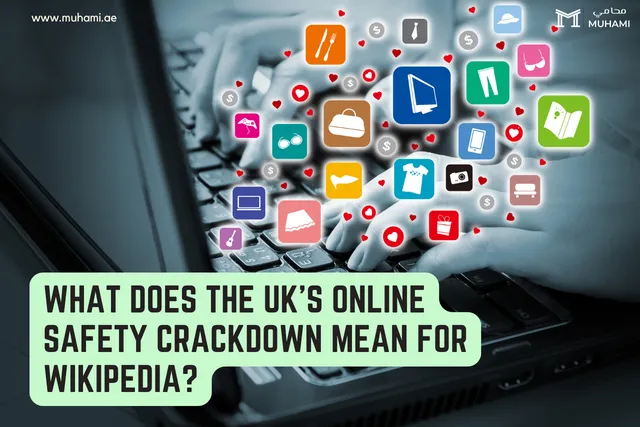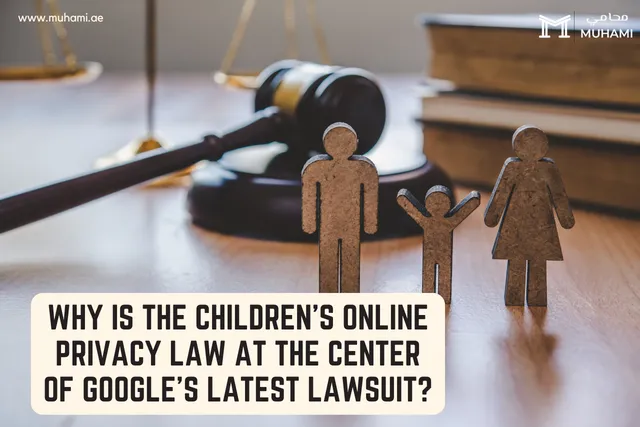Intellectual Property Law in the UAE: A Closer Look

Warren Buffett famously said he only invests in businesses with “moats” around them, meaning durable competitive advantages that protect a company from its rivals and help secure its own growth. While moats can take many forms, one of the most powerful and enduring in today’s times is intellectual property (IP).
This is especially important in light of the growing use of artificial intelligence globally. As we’re seeing the constant rise in AI-related lawsuits for breach of IP rights, it’s becoming increasingly clear that modern, enforceable IP laws are necessary to create legal and commercial barriers that cannot be crossed.
The United Arab Emirates (UAE) is among those countries that recognise the importance of strong IP protection in current times. The result? An updated and internationally aligned legal framework. Emirati courts have made it clear through recent decisions (such as the one involving Red Bull’s protection of its IP in the UAE) that there will be strict enforcement of the country’s IP laws from here on out.
In this article, Ronin Legal closely examines these IP laws and gives an overview of what they cover and comprise.
A Modern Legislative Framework
The previous legal framework for IP laws in the UAE consisted of:
- Federal Law No. (17) of 2002 on the Regulation and Protection of Industrial Property,
- Federal Law No. (7) of 2002 on Copyright and Neighbouring Rights, and
- Federal Law No. (37) of 1992 on Trademarks
The updated legal framework comprises three federal laws enacted in 2021, each repealing and replacing its predecessor:
- Federal Law No. (11) of 2021 on Industrial Property Rights (Industrial Property Law)
- Federal Law No. (38) of 2021 on Copyright and Neighbouring Rights (Copyright Law), and
- Federal Law No. (36) of 2021 on Trademarks (Trademark Law)
Together, these laws cover the entire range of IP rights, offering clear procedures for registration, enforcement, and commercialisation. Administered by the Ministry of Economy (MoE), they draw on international best practices and demonstrate the UAE’s commitment to treaties like the Paris Convention, Berne Convention, and the TRIPS Agreement.
Industrial Property
A cornerstone of the UAE’s IP regime is the protection of industrial property, governed primarily by the Industrial Property Law. This law offers comprehensive protection for the following:
Patents and UMCs
Patents are granted for inventions that are new, inventive, and industrially applicable, with protection lasting 20 years. For less complex inventions, specifically those lacking an inventive step, utility model certificates (UMCs) can be applied for which offer a 10 year protection term.
Certain categories of inventions are explicitly excluded from protection, such as research, plant or animal species, medical and surgical methods, scientific principles and discoveries, business methods and computer programs, and inventions contrary to public order and morality.
Registration
Patent and UMC applications undergo formal and substantive examination by the MoE, which may request supporting documents to be submitted within 90 days. Once granted, patents are published in the UAE’s Industrial Property Bulletin, marking the beginning of enforceable rights.
The UAE is also a signatory to several international treaties, including the Patent Cooperation Treaty, which streamlines patent protection procedures for international applications. In other words, the UAE also provides a route to international protection once registration is completed domestically.
Rights
Patent and UMC holders enjoy exclusive rights to exploit their inventions, and prevent any third parties from either using, manufacturing, or selling the patented invention in the UAE, unless under a license.
It’s important to note that any invention created during the term of the employment contract belongs to the employer, unless otherwise agreed. Additionally, if a patent is filed within two years of the employee’s departure, it is presumed to have been made during employment, granting rights to the employer.
Industrial Designs
Industrial designs, which protect the aesthetic aspects of products (including shape, pattern, and colours) can be registered under the law to give 20 years of protection. To qualify for protection, the designs must be novel (it is considered novel unless disclosed before the filing date) and not violate public order or morals.
Industrial designs rights holders can prevent third parties from using, importing, possessing, offering for sale, or selling any products related to the Industrial Design.
Undisclosed Information
Additionally, the law provides for the protection of undisclosed information, such as trade secrets and confidential business information, that provide a competitive advantage to businesses. The conditions for protection of undisclosed information are; it must be confidential (not widely known in the relevant field), derives commercial value from secrecy, and the owner has taken effective measures to maintain its confidentiality.
These rights are not time-limited but require proactive safeguards by the rights holder to prevent unauthorised disclosure.
Copyright and Creative Ownership
The UAE’s Copyright Law significantly updates and strengthens the legal protection afforded to the creators of original works (authors), such as literary, artistic, and musical works, which gives them exclusive control over the use, reproduction, and distribution of their creations.
The law protects a broad range of works such as books, essays, computer programs, smart applications, software and software applications, dramatic, musical, and audio-visual work, architecture, and photographs.
Rights
Under the Copyright Law, authors are granted two principal types of rights:
1. Economic rights, which includes the right to reproduce the work in any form, distribute copies to the public, perform or display the work publicly, and create adaptations or derivative works.
2. Moral rights, which include the right to claim authorship, first publication, and object to any modifications that could harm the integrity of the work.
Rights typically last for the lifetime of the author plus 50 years, or in the case of collective works (created by a group of authors); lifetime of the last surviving author plus 50 years.
In employment contexts, the employer generally owns the economic rights to works created during the scope of employment and with the employer’s resources (unless otherwise agreed), while moral rights remain with the employee-author.
Registration and Enforcement
Registration is not mandatory, but authors may voluntarily register their work with the MoE, which issues a certificate of registration. The law strongly enforces rights against infringement,
including unauthorised use of neighbouring rights such as performances and broadcasts, with penalties including fines from AED 10,000 to AED 100,000 and imprisonment for a minimum of two months.
Exceptions
The law also outlines clear exceptions where copyrighted works may be used without permission, such as for personal and non-commercial use, educational and research purposes, criticism or review with proper credit, or non-commercial performances at schools and family events. It also allows the use of works that have legally been made available to the public.
As AI-generated content increasingly gives way to legal disputes over copyright infringement, this law will play a key role in guiding how such cases are handled in the UAE. Courts will need to interpret these exceptions in the context of AI use, particularly to determine whether the use of copyrighted material by AI tools qualifies as fair or permitted use under UAE law.
Trademark Protection
Trademarks are fundamental to commercial identity and consumer trust, and the Trademark Law establishes a structured regime for their registration, protection, and enforcement.
A trademark may consist of words, logos, symbols, sounds, or any distinctive combinations that distinguish one entity’s goods or services from another. Even trade dress (the distinctive visual appearance or packaging of a product) can be protected under the law if it meets the requirements of distinctiveness and non-functionality.
Registration
Once registered, trademark protection extends for 10 years from the filing date and is renewable indefinitely, provided renewal is requested in the last year of validity or within a six-month grace period after expiry.
Applicants may also claim a priority right under the Paris Convention by submitting documentation of an earlier application from a member country within six months.
Rights
Trademarks can be transferred, licensed, assigned, or pledged through binding agreements. However, not all marks are eligible for protection; exclusions apply to generic or deceptive marks, emblems, flags, and any mark contrary to public order or morality.
Interestingly, the UAE Trademark Law offers a unique provision for trademark owners planning to exhibit their goods or services at officially recognized international exhibitions within the country. They can apply for temporary trademark protection, provided they submit the application at least one month before the exhibition’s opening date.
This UAE-specific measure reflects the country's active exhibition scene and offers a valuable opportunity for entrepreneurs and businesses to safeguard their brands while testing new markets or building global visibility.
Penalties
Similar to the Industrial Property Law and Copyright Law, the enforcement provisions have been made more stringent. Acts such as counterfeiting, imitation, or unauthorised use of a registered mark are punishable by imprisonment and fines ranging from AED 50,000 to AED 1,000,000.
Conclusion
The UAE’s intellectual property framework is more than just a legal system; it is a strategic asset designed to fuel innovation, attract international investment, and enhance the competitiveness of its economy. By aligning with international standards and incorporating modern enforcement tools, the UAE offers both domestic and foreign stakeholders a reliable jurisdiction for protecting intellectual assets.
Any Questions?
Connect with lawyers and seek expert legal advice
Share
Find by Article Category
Browse articles by categories
Find Article by Practice Area
Browse articles by practice area
Featured Partnership
Lawcloud
LawCloud: All-in-One Legal Practice Software
Related Articles

What Does the UK’s Online Safety Crackd…
The U.K.'s Online Safety Act (OSA) has faced significant criticism for its …

What Does the UK’s Online Safety Crackdown Mean f…
The U.K.'s Online Safety Act (OSA) has faced …

Why Is the Children’s Online Privacy La…
On August 19 2025, Google agreed to pay $30 million in a preliminary settlement…

Why Is the Children’s Online Privacy Law at the C…
On August 19 2025, Google agreed to pay $30 milli…

Can AI Meeting Tools Record Without Con…
Smart devices, such as voice assistants, fitness trackers and AI-powered meetin…

Can AI Meeting Tools Record Without Consent?
Smart devices, such as voice assistants, fitness …
